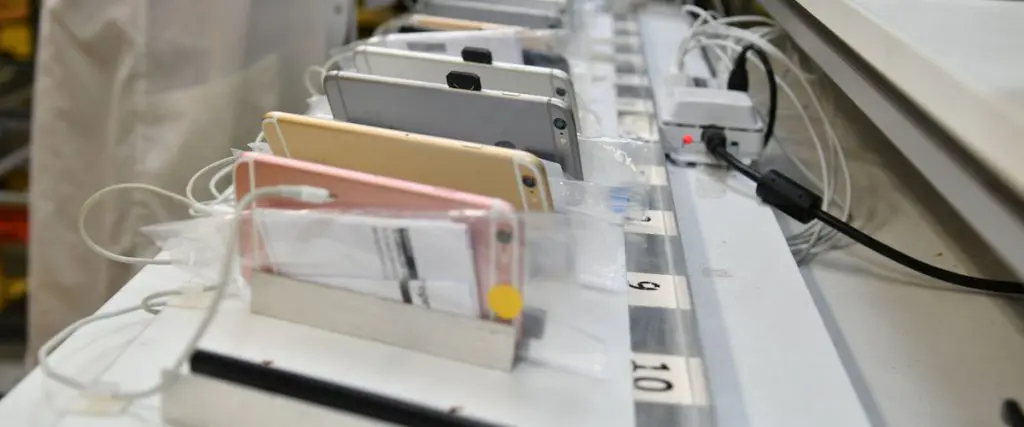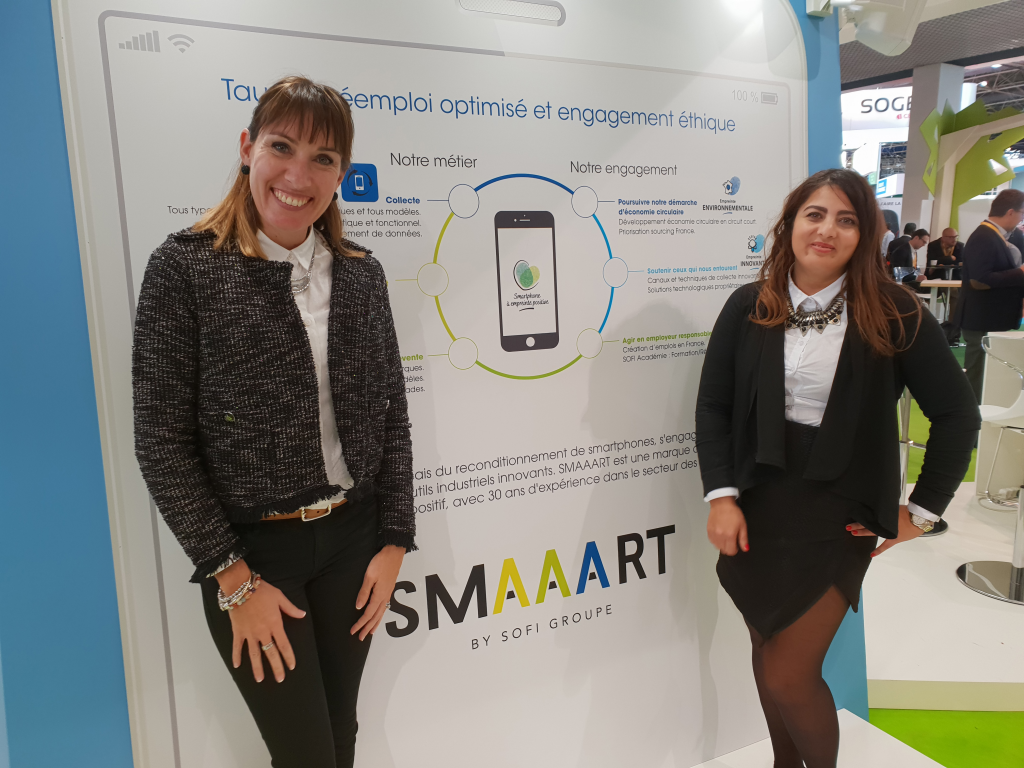More than 1.5 billion mobile phones were sold worldwide last year while about 140 million handsets were refurbished, representing a 13% growth on the previous year. ‘Second-life phones are becoming a lot more popular,’ Meriam Ben Ali of eco-phone brand SmAAArt told Recycling International at the Pollutec expo.
SOFI Group subsidiary SmAAArt and its French partners recycle 40% of all phones collected annually, most of which can be rerfurbished. ‘Not only do consumers save up to 50% on purchasing costs, we saved 6000 tonnes of materials in 2017 alone,’ Ben Ali said at the trade show in Lyon.
Rigorous checking
She explained howrefurbished handhelds are initially scanned with patented software, logging 40 critical points. These include battery status, external and internal damage, howoften the device has been charged, brand/colour/model type and where it was sold.
‘We are very thorough,’ Ben Ali said. ‘The devices are scrutinised as carefully as if they were brand-new products. Our engineers can spot any problem thanks to their dedicated training at our in-house SOFI Academy.’
Pop-up power
‘Sales of second-life phones have definitely gone up during the last few years, particularly thanksto our pop-up store in Paris,’ Ben Ali said. ‘The feedback from the people has been wonderful. A few weeks ago, a couple of well-known lifestyle bloggers visited our Paris shop to write about the high quality of our products.’
She added: ‘People traditionally believe that only new batteries and new components can be good but that’s simply not true. We have a range of various grades; A, B, C and D. They all have 100% functionality and the real difference is on the outside; for example scratches on the outer case.’ Naturally, prices vary accordingly.
Functionality vs aesthetics
‘Consumers are really getting on board. They want devices that work – period: the rest is aesthetics.’ A recent French telecom study reported that some 30% of French consumers are tempted to purchase a new electronic device during the winter holidays. Around 40% said they would have no problem buying a phone that had some visible defect, aslong as the device worked properly and the price was reduced by a third.
SmAAArt also strives to combine sustainable business with social engagement. The company’s business model includes recruiting people who experience difficulty finding steady employment. It also regularly organises recycling projects at French hospitals and supports the fight against cancer by donating to R&D. ‘We want fair chances for all,’ said Ben Ali.

Stay tuned for the full Pollutec review, which will be featured in the January/February issue of Recycling International!
Don't hesitate to contact us to share your input and ideas. Subscribe to the magazine or (free) newsletter.



